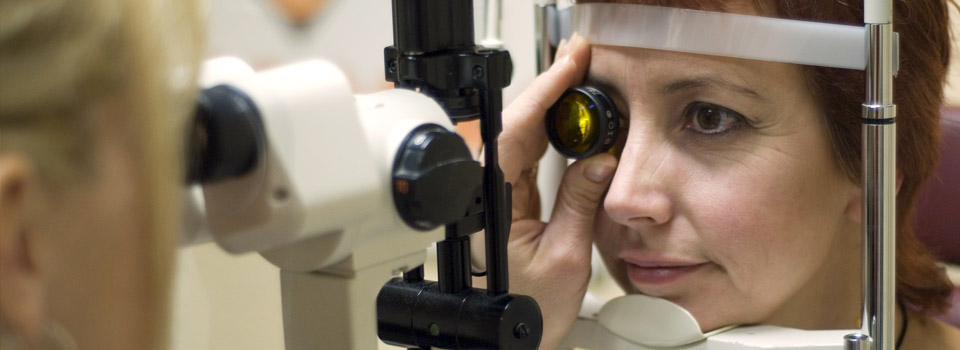
If you've been diagnosed with macular degeneration, glaucoma or another vision-robbing eye disease, you may be worried about how you will cope with everyday tasks. You may be concerned about losing your independence and not being able to enjoy activities like reading or watching TV.
Fortunately, there is plenty of support available from low vision optometrists and an ever-growing range of equipment called low vision glasses and devices.
At in we provide low vision glasses and devices that can make a dramatic difference in your life and help you regain the independence that you seek.
What Is Low Vision?
People with low vision, which is sometimes called “partial vision” or “partial blindness,” have eyesight that cannot be improved with regular glasses, contact lenses or surgery.
What Are Low Vision Glasses and Devices?
Low vision telescope and microscope glasses, hand and stand magnifiers, special eyeglasses and other aids and devices maximize your vision so you can perform activities like reading, preparing meals, using a computer, watching TV and navigating inside your home and outdoors. These aids make it easier to continue living an active life.
Low Vision Magnifiers
Conventional and electronic magnifiers make objects and print appear larger. Whether you need to thread a needle or read a menu, you have a choice – hand-held, stand-alone and battery-operated magnifiers you can take anywhere.
Low Vision Glasses
These aren’t your regular eyeglasses. Low vision glasses can include:
- Bioptic lenses – a small mounted telescope helps you see far away objects
- Tele-microscope lenses – combine features to enhance both close and distance vision
- Prismatic reading glasses – alter the way light enters the retina to help you see better
- Side vision awareness glasses – enhance your peripheral vision
- Absorptive lenses – tinted lenses that limit glare and accentuate contrast
Color Contrast Devices
In addition to special tinted glasses, color contrast devices can make letters on your keyboard more visible and can improve the contrast on your computer screen.
Large Print Items
You can purchase large print books, and also remember to look for apps that can enlarge print on your computer or mobile device automatically.
Audio Products
Tools like Google Voice Search and the iPhone’s Voice Control can help you surf online without having to squint. Enjoy the pleasures of reading again with audio books. Smart technology can give you the time of day, product use instructions and so much more.
Video Camera Magnifiers
Reading or working on a computer is easier with video camera magnifiers that focus cameras on objects and magnify them on a screen. You can also adjust the magnification as well as color and contrast settings.
Telescopes
Telescopes provide intense magnification and are positioned on regular glasses. See better with hands-free magnification, available in binocular or monocular versions.
Who Is a Good Candidate for Low Vision Aids?
If you have a medical condition, including glaucoma, diabetic retinopathy, age-related macular degeneration or retinitis pigmentosa, or if you've sustained vision loss due to an eye injury, stroke or congenital problem, low vision aids can make the most of the vision you have.
We offer a full range of low vision glasses and devices so you can use your remaining vision to the fullest.
Where Do I Buy Low Vision Glasses and Devices?
In addition to eye disease management, we provide a wide selection of low vision magnifiers, glasses and other products. We will also advise you on lifestyle changes to help you live a fully active life with low vision. Schedule your appointment at in today.
Q: What are low vision glasses?
A: Low vision glasses help restore vision lost as a result of injury or eye condition. We offer a variety of glasses to help low vision patients regain their independence. The magnification power, field and weight of eyeglasses vary according to your needs, lifestyle and routine tasks. For example, certain glasses help with driving, whereas others help with reading and needlework.
Q: Is macular degeneration hereditary?
A: Macular degeneration (AMD), a leading cause of low vision and blindness in people over 50, has a strong genetic component. If a parent or sibling has AMD, your risk of developing the condition is 3-4 times higher. If you have a family history of AMD, be proactive and schedule regular eye exams at in . The sooner your optometrist diagnoses and treats your AMD, the better your chances of preserving your vision.
Our practice serves patients from Test city, Test City2, Test City3, and Test City4, Test State and surrounding communities.



